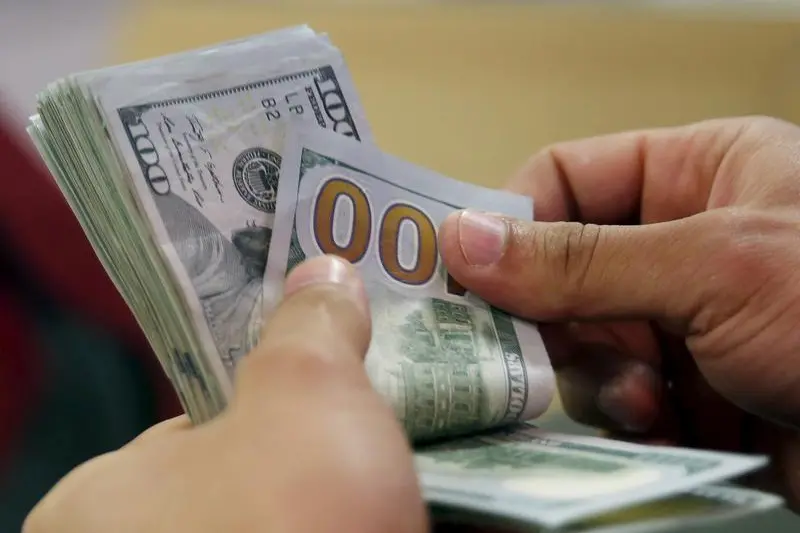PHOTO
LONDON - The dollar strengthened on Thursday a day after the U.S. Federal Reserve said it expected interest rates to stay higher for longer, while the pound came under pressure from a dovish message from the Bank of England (BoE).
Up next is the European Central Bank, which will announce the result of its meeting at 13.15 GMT, capping a busy day for major central banks after Switzerland and Britain raised rates by 50 basis points (bps)
Norway increased rates by 25 bps, while the Fed hiked by 50 bps on Wednesday.
The euro shed 0.5% to $1.06121, falling off a six-month peak hit a day before, while the dollar climbed 0.8% on the Japanese yen to 136.55.
The pound, which hit a six-month high on the dollar this week, fell 1% to $1.230 and weakened on the euro as well. The European common currency was up 0.37% at 86.33 pence after the Bank of England's decision.
"The initial reaction is a dovish outcome with two members voting to keep the rate unchanged. However, the bank appears to be keeping its options open here, citing improvement in growth forecasts from November and still strong labour markets," said Robert Dishner, senior portfolio manager - multi sector fixed income, at Neuberger Berman.
Six Bank of England policymakers voted for a 50 bps rise though one voted for 75 and two said it was time to halt rate rises entirely.
Thursday's moves took place in the shadow of a Fed meeting the previous day, where it decided to raise interest rates as expected by 50 basis points and made a few changes to its official statement.
The dollar firmed after chair Jerome Powell said more increases would come next year and the benchmark overnight interest rate would rise above 5% in 2023, as signs of slowing inflation have not brought confidence the fight has been won.
"A virtually unchanged FOMC statement raised hawkish flags due to the conspicuous absence of a dial back in tightening language," said Vishnu Varathan, head of economics and strategy at Mizuho Bank.
"The upshot is that the Fed is not merely indicating a higher peak, but is emphasizing on restrictive rates for longer."
The dollar was also stronger versus the Swiss franc and Norwegian crown after their central bank meetings. It traded at 9.794 Norwegian crowns, up 1% on the day and the euro was up 0.3% at 10.405 crowns.
The dollar rose 0.3% to 0.9279 francs, but pared its gains after the head of the Swiss National Bank said the central bank had been selling foreign currencies. The euro slid after the remarks and was last down 0.2% at 0.9854.
In Asia, China's economy lost more steam in November as factory output slowed and retail sales extended declines, both missing forecasts and clocking their worst readings in six months as the economy gets hobbled by a surge in COVID-19 cases.
The Australian dollar, often used as a liquid proxy for the yuan, was last down 1.49% to $0.6761.
(Reporting by Alun John; Additional reporting by Nell McKenzie in London and Rae Wee in Singapore; Editing by Simon CamerMoore, Edmund Blair and Arun Koyyur)





















